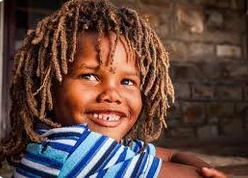
support@yorubalibrary.com
+2348073529208, 07038599574

"Oruko Amutorunwa” are pre-destined names given to a child during his/her birth (colloqually translate to names brought from heaven). These names are given to a child due to circumstances surrounding his/her birth. Such happenings may be expressed by a name which is applicable to all children born under the like circumstances.
The most popular of these is twin-births. No condition is invested with an air of greater importance, or has a halo of deeper mystery about it, than that of twin-births ; the influence is felt even upon children that may be born after them. Twins in Yoruba are almost credited with extra-human powers, although among some tribes they are regarded as monsters to be dispatched at once.
In this article today, we will explore diffferent Oruko Amutorunwa and their associated meanings. Oruko Amutorunwa is often given instantly the child is born even before the naming ceremony. Let's checkout each of those names one after the other...
| Oruko Amutorunwa | Meaning |
|---|---|
| 1) Taiwo | The name of the first born of twins, applicable to either sex. It is a shortened form of To-aiye-wo (have the first taste of the world). The idea is that the first born was sent forward to announce the coming of the latter, and the child is considered the younger of the two. |
| 2) Kehinde | “He who lags behind" i.e. the second born. This is often consider the elder of Taiwo in Yoruba culture, as this child is believed to be the one that first sent Taiwo an errand to go and "taste the world" |
| 3) Idowu | The child born after twins, male or female, Idowus are always considered heady and stubborn, hence their usual appellation "Esu Leyin Ibeji " (the devil after twins). |
| 4) Idogbe | The child after Idowu if male. |
| 5) Alaba | The child after Idowu if female. |
| 6) Eta Oko | The name given to the third of triplets. |
| 7) Oni | This name is given to a small neurotic child which at its birth cries incessantly day and night. |
| 8) Asa/Oroye | These names are applied under conditions similar to those of Oni by some clans. The latter is generally preferred by worshippers of the god Orisa Oko. |
| 9) Ige | This is a child born with breech or footling presentation. |
| 10) llori | This is a child who was conceived during absence of menstruation. |
| 11) Omope | This signifies “the child is late” that is, a child born later than the normal period of utero-gestation. |
| 12) Ojo/Aina | This is a child born with the cord twined round its neck. The choice of name is a matter of preference partly clannish or by the decision of the family Oracle. Ojo, however, is never given to females, Aina may be male or female. |
| 13) Ajayi | This is a child born “with face downwards" it is styled Adojude, that is to say, when rotation is absent during the exit of the shoulders. |
| 14) Oke | This is a child born with membranes un-ruptured. |
| 15) Salako/Talabi | Salako (male), Talabi (female), is a child born with the head and body covered with the caul, or ruptured membranes, |
| 16) Dada | This is a curly-hair child often referred to as Dada Awuru, Olowo Eyo |
| 17) Olugbodi | This is a child born with supernumerary digits. This can be either toes or fingers. |
| 18) Abiona | This means “born by the way side” i.e. a child born when the mother is on a journey, or away from home. |
| 19) Abiodun | This is a child born at the new year or any annual festival. |
| 20) Abiose | This is a child born on a holy day (often Sabbath day) |
| 21) Babatunde | The means “father comes again”; a name given to a male child born soon after the death of its grandfather. The sire is supposed to re-appear in the newly born. |
| 22) Abiba | This is applied to a female under similar circumstances above |
| 23) Yetunde | This means “mother comes again”, a name given to a female child born soon after the death of its grandmother. The granny is supposed to re-appear in the newly born. |
| 24) Babarimisa | (father fled at my approach) is the name given to a posthumous child. |
| 25) Jo’hojo | This is a child whose mother died at its birth or during the puerperium. |
Credit: The history of Yoruba by Rev Samuel Johnson
Which is your favourite amongst the list?

Learn about the Yoruba concept of Ìwà Pẹ̀lẹ́ (good…

Learn special praises for Divine Being and Creator…